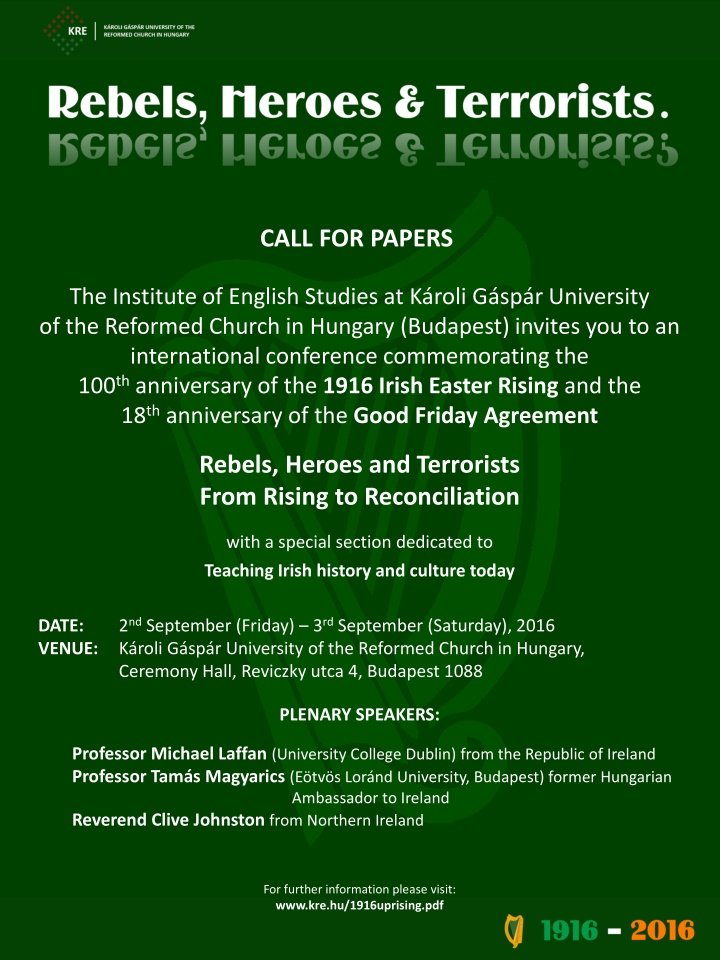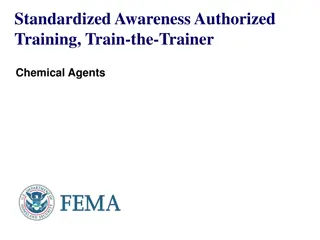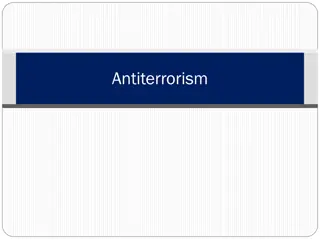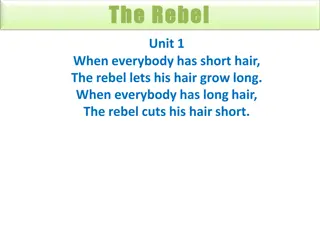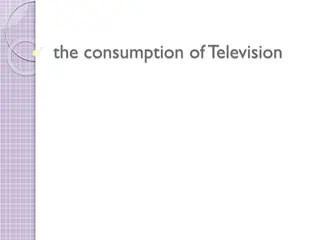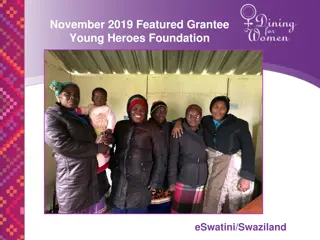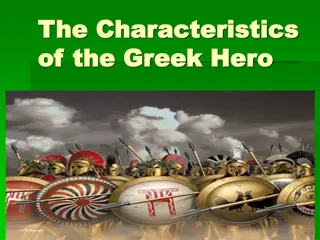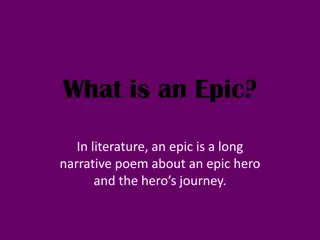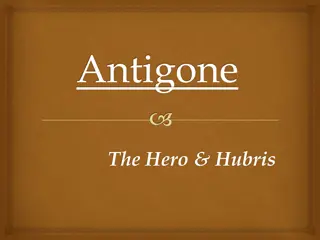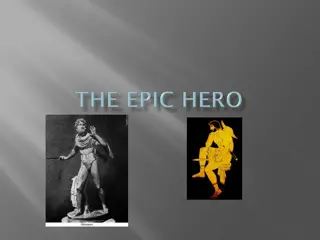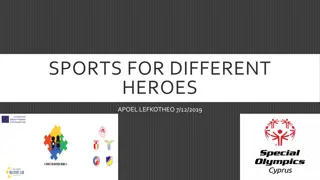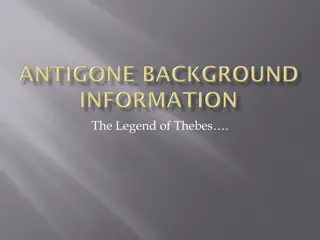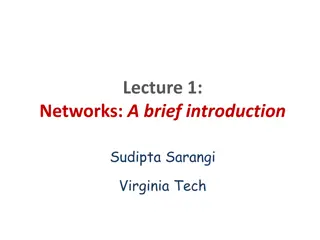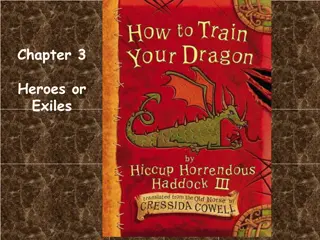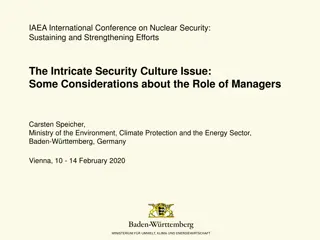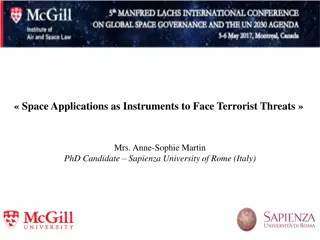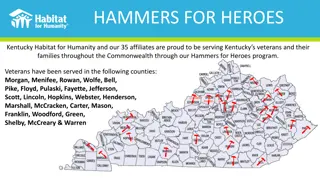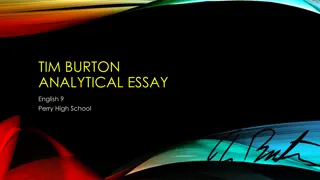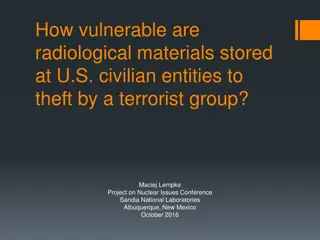Rebels, Heroes and Terrorists
The international conference commemorating the 100th anniversary of the 1916 Irish Easter Rising and the 18th anniversary of the Good Friday Agreement brings together scholars and experts to delve into the complexities of Irish history and the quest for reconciliation. Discussions range from the role of violence in achieving independence to the ongoing challenges of sectarianism in Northern Ireland. Join the dialogue on pivotal moments and their lasting impact.
Download Presentation

Please find below an Image/Link to download the presentation.
The content on the website is provided AS IS for your information and personal use only. It may not be sold, licensed, or shared on other websites without obtaining consent from the author.If you encounter any issues during the download, it is possible that the publisher has removed the file from their server.
You are allowed to download the files provided on this website for personal or commercial use, subject to the condition that they are used lawfully. All files are the property of their respective owners.
The content on the website is provided AS IS for your information and personal use only. It may not be sold, licensed, or shared on other websites without obtaining consent from the author.
E N D
Presentation Transcript
CALL FOR PAPERS The Institute of English Studies at K roli G sp r University of the Reformed Church in Hungary (Budapest) invites you to an international conference commemorating the 100th anniversary of the 1916 Irish Easter Rising and the 18th anniversary of the Good Friday Agreement Rebels, Heroes and Terrorists From Rising to Reconciliation with a special section dedicated to Teaching Irish historyand culture today DATE:2nd September (Friday) 3rd September (Saturday), 2016 VENUE: K roli G sp r University of the Reformed Church in Hungary, Ceremony Hall, Reviczky utca 4, Budapest 1088 PLENARY SPEAKERS: Professor Michael Laffan(University College Dublin) from the Republic of Ireland Professor Tam s Magyarics(E tv s Lor nd University, Budapest) former Hungarian Ambassador to Ireland Reverend Clive Johnstonfrom Northern Ireland For further information please visit: www.kre.hu/1916uprising.pdf
The 1916 Easter Uprising The conference is one of several hundred international events remembering 1916 as one of the most dramatic and pivotal times in Irish history. The 1916 Easter Uprising was the forerunner to the independence of Ireland after 700 years of British rule, as well as the precursor to the disintegration of the British Empire and of colonial empires worldwide. Speaking at the launch of Ireland 2016 , Prime Minister of Ireland, Enda Kenny said: Easter 1916 was a moment when Irish nationalism joined forces with a revolutionary cultural and language movement to forge an irresistible campaign towards self-determination. It is important that the Irish people have the opportunity to come together to celebrate and have pride in Ireland s independence and to honour those who gave their lives so that the dream of self-determination could become a reality . In the meantime, Sinn F in, called on the Irish people to commemorate those who fought for Irish freedom, celebrating their spirit and vision and committing to the values of the Proclamation to build a New Republic of equals and bring an end to partition . Alternatively, numerous historians and public figures are calling into question whether celebrating 1916 is morally right. They are raising questions and hosting public debates on prime time television and throughout colleges and universities in Ireland that put the above issues in an entirely new context. Were the rebels on the rightside of history? Was the rising justified? Did they have the right to use violence? Can violence be ever justified? Can anything unequivocally good come out of violence? Was warfare, and all the death, destruction and bloodshed that it brings, the only way to achieve independence?
The Good Friday Peace Accords of 1998 Ireland, and years of secret negotiations and multinational talks, the Good Friday Agreement of 1998, and the ensuing referenda officially ended the Troubles . The peace agreement signalled a new beginning between the loyalist and republican communities in Northern Ireland, as well as between Northern Ireland, the Republic of Ireland, and Great Britain. The unimaginable actually happened when the first ever Protestant-Catholic power-sharing government in Irish history was set up. But, even though Northern Ireland has come a long way in the past 18 years, the reality on the ground is that the Northern Irish cities, towns and villages are still deeply divided along sectarian lines. How is sectarianism and segregation to be tackled on the ground in Northern Ireland today? What are some of the tried and tested solutions that can actually bring true reconciliation to such a deeply divided society? What are some of the potential issues that might derail the peace process? How will the upcoming elections for the Northern Irish Assembly in May 2016, and the UK referendum whether to leave or remain within the European Union affect Northern Irish politics? On a brighter note, we would like our distinguished panel, as well as the conference participants to reflect on the lessons that Northern Ireland can offer from its long trajectory of successes and failures to the rest of the world in peace-making and conflict resolution policies. After decades of division, discrimination and terrorism in Northern Teaching Irish History and Culture Today who lecture on Irish studies related courses in higher education. How have you found teaching your Irish studies subjects challenging and/or rewarding? Which are some of the main parallels of Irish and Hungarian history or culture that you cover in your classes? How have you shifted focus or methodology in recent years? What have you found works best with your students? What have been some of the most popular topics for BA or MA thesis papers within the field of Irish studies? What could be done to assist you to meet the needs of your students in these classes or when writing their thesis papers? We would like to dedicate a section of our two-day conference to those
Papers: We welcome proposals for papers addressing one of the above themes from scholars, university lecturers, secondary school teachers, and PhD students active in various fields, including (but not limited to): history, political science, political philosophy, theology, law, linguistics, literature, social and cultural studies, the visual and creative arts, or other related disciplines. There will be a special session for MA students to present their papers on Saturday afternoon. The language of the conference will be English. The allotted time for presentations will be a maximum of 20 minutes per paper. The plenary papers and a selection of the conference papers will be published in a conference volume. Please send a short abstract and your CV, along with the registration form (downloadable from http://www.kre.hu/btk/index.php/irisheasterrisingconference.html) to the organizers at the following email address: easterrising2016@kre.hu Deadline for submission of abstracts: June 1, 2016 Registration fees: Standard fee: 5000 HUF (bank charges not included and payable after application has been approved by organizers) but no later than June 30, 2016. Reduced fee: 2000 HUF payable by PhD students until June 30, 2016 Free of charge: MA students In the name of the organizing committee: Dr. Julia Fodor
